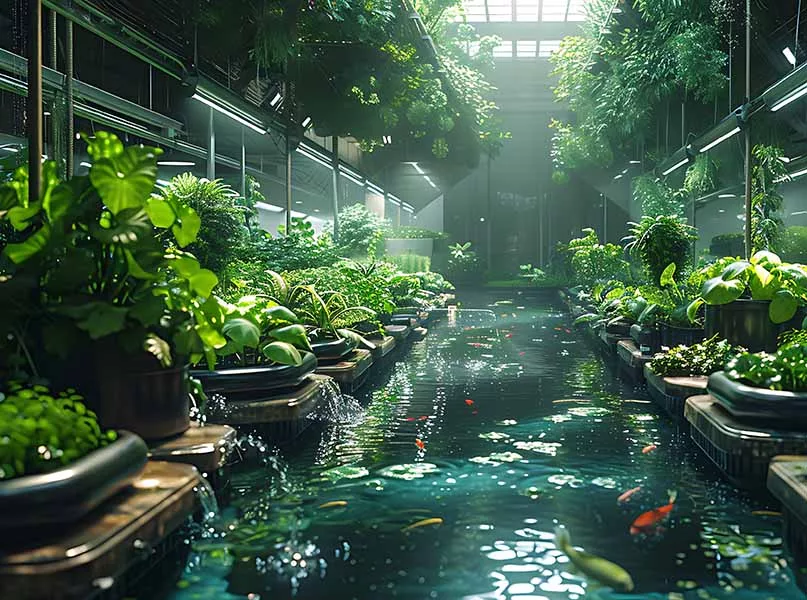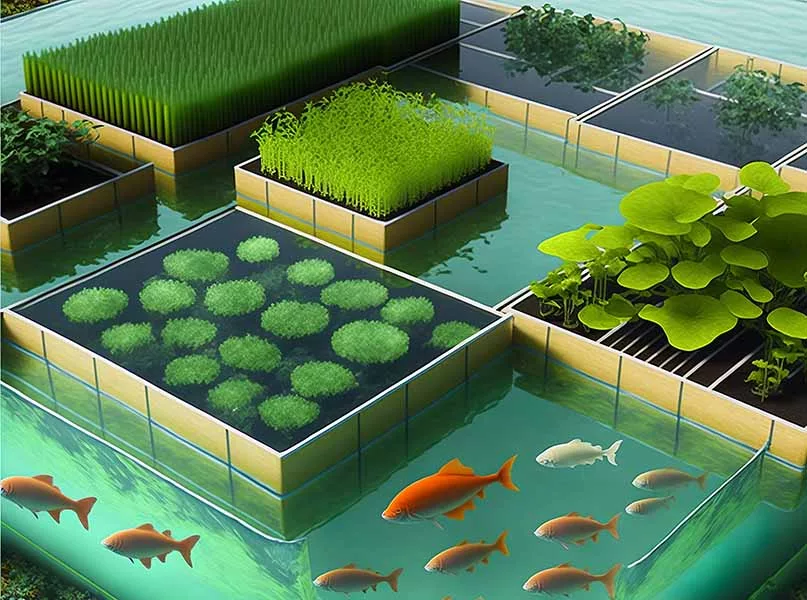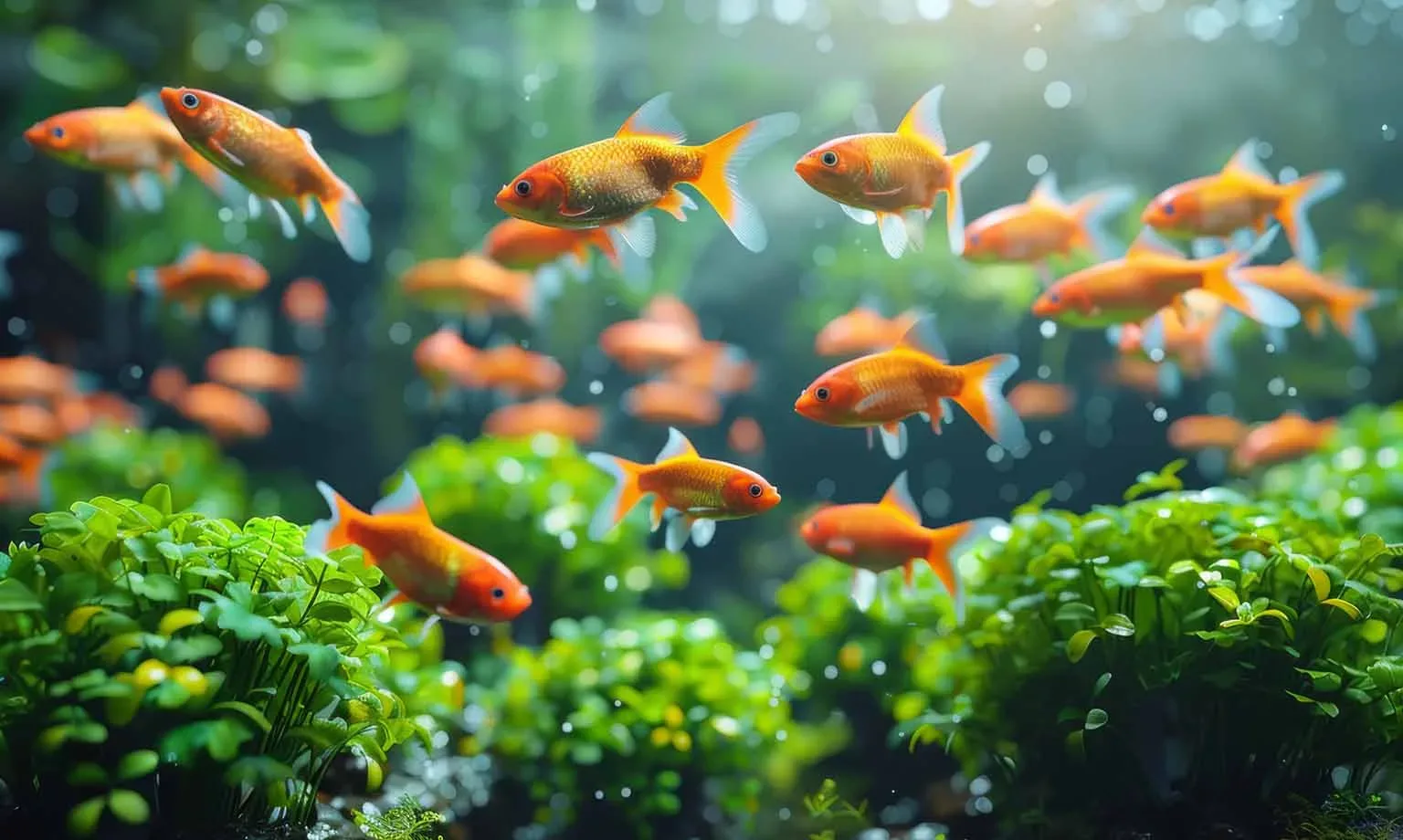Aquaponics, an advanced aquaculture system, is expected to improve food security and revolutionise farming across Africa. We dig into this exciting new process and evaluate the enormous potential for transforming an entire continent’s agricultural prospects.
FARMS OF THE FUTURE
One of the greatest and most urgent challenges facing the world is how to meet the nutritional needs of a growing population that is currently projected to reach 10 billion by 2050.
To meet these ominous additional demands, global food production must identify new ways to increase yields by up to 50 percent.
The vast continent of Africa, with its myriad climates, diverse array of landscapes, and numerous agricultural challenges, is increasingly turning its attention to more innovative and sustainable farming methods in order to enhance and secure the future of its food production for an ever-expanding population.
Increasing pressure on water resources, reduced land water availability, and concerns over food security have spurred the evolution of many innovative and complex food production processes across the continent.
A transformative and key new agricultural method that continues to gain momentum is the practice of aquaponics, a symbiotic farming system that innovatively combines aquaculture (fish farming) and hydroponics (soil-less plant cultivation).
Promising to transform the global farming landscape, this method is uniquely suited to address some of the agricultural challenges experienced across Africa and contribute to a more sustainable and resilient food system.
Aquaponics relies on a mutually beneficial relationship between fish and plants, which involves the former excreting waste that is then broken down into vital nutrients used by the latter for nourishment.
In return, plants act as natural filters, purifying the water and allowing fish to thrive in a clean and healthy environment.
As such, within this clever closed-loop system, water circulates between fish tanks and plant beds, creating a symbiotic relationship and a wholly sustainable agricultural cycle.

TACKLING WATER SCARCITY AND EFFICIENCY
Across Africa, many regions continue to face water scarcity issues, which cause severe complications for traditional farming methods, making these practices far less sustainable.
Climate change is undoubtedly the primary cause, as the continent must contend with unpredictable weather patterns and events which have left many of its communities grappling with water scarcity, including areas of South Africa, Kenya, Ethiopia, and Somalia.
However, in the face of such environmental turmoil, the revolutionary practice of aquaponics is highly water-efficient, requiring up to 90 percent less water compared to conventional agriculture.
CLIMATE RESILIENCE AND LOCALISED PRODUCTION
Africa is a continent of diverse climates, from arid regions to vast tropical zones, each of which poses unique challenges for traditional farming methods.
However, aquaponics allows for year-round cultivation in controlled environments, which subsequently mitigates the severe impacts encountered from climate variations.
Now possessing the beneficial ability to set up aquaponics systems in greenhouses or controlled indoor spaces, African farmers hold greater control over temperature, humidity, and other crucial environmental factors, ensuring consistent and reliable yields.
Parallel to this, aquaponics offers the capability of enhancing localised food production by greatly reducing the need for long-distance transportation and minimising the carbon footprint associated with traditional methods of food distribution.
Furthermore, this decentralised approach is empowering communities to produce their own fresh, nutritious food whilst also contributing to food security and decreasing dependence on external sources.

DIVERSIFICATION AND EDUCATION
Across the African continent, small-scale farmers continue to experience economic uncertainties because of their reliance on a single crop.
Tackling this problem, aquaponics allows for the cultivation of fish and a range of crops simultaneously, helping diversify farmers’ income streams.
As such, by incorporating varying species of fish and a fresh selection of vegetables and herbs, farmers can now access multiple markets, increasing their resilience to potentially harmful market fluctuations.
Implementing the process of aquaponics introduces new, sustainable farming techniques that require comprehensive levels of training and education.
This enables the exciting opportunity for skills development and capacity building in rural African communities, where agricultural, governmental, and non-governmental organisations all now have the chance to play a vital role in providing training programmes to empower farmers with the knowledge needed to establish and maintain successful aquaponics systems.
Aquaponics farming, therefore, holds exceptional potential for addressing the unique challenges faced within the African agriculture sector.
Improved water efficiency, climate resilience, and the ability to support localised food production have established this technique as a compelling solution, tailor-made for a continent striving for sustainable and self-reliant agricultural practices.
As awareness grows and support systems are secured, aquaponics holds the exciting potential to emerge as a transformative force in reshaping the future of agriculture in Africa, alongside enhancing food security, economic development, and environmental sustainability.






























